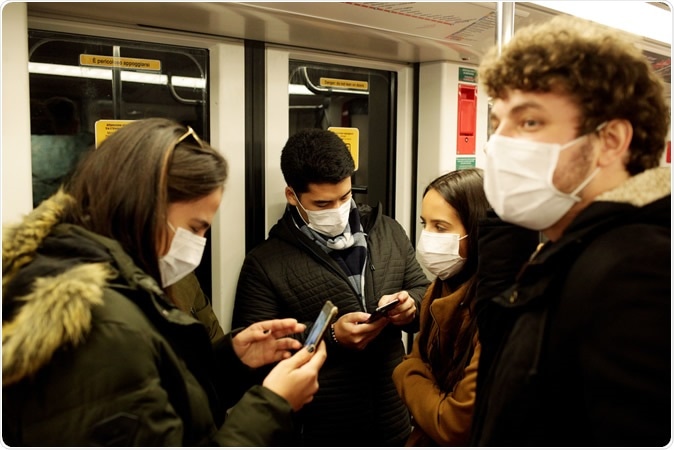Italy is grappling with the coronavirus disease (COVID-19) spread in the country, which has so far taken 366 lives and infected 7,375 people. Now, the government plans to isolate and quarantine the northern part of Italy, including Milan and the epicenter of the virus spread, Lombardy, affecting about 16 million people.
The total number of infections has increased 25 percent from 5,883 in just two days, making the country the second one with the highest number of infections worldwide, next to South Korea that reported 7,382 cases and 50 deaths.
The government has imposed radical measures in an attempt to contain the outbreak. The areas affected include Lombardy and 14 other provinces, while only those with special permission to travel will be allowed to travel, under new quarantine rules.
Officials have deployed law enforcement to implement the new restrictions and oversee borders, to make sure no one will pass through without thorough check-ups.
"We want to guarantee the health of our citizens. We understand that these measures will impose sacrifices, sometimes small and sometimes very big," Prime Minister Giuseppe Conte said in a statement.

MILANO, ITALY - FEBRUARY 22, 2020: Coronavirus in Italy. Image Credit: Praszkiewicz / Shutterstock
Schools shut down
Large gatherings are now banned in the hope of containing the virus. Health officials said they are also shutting down schools nationwide for two weeks.
Meanwhile, the government promised to assist parents with children below 14 years old. About 8.4 million children are out of class well before the Easter break, which affects parents who may have problems with babysitting their children.
Prime Minister Giuseppe Conte also announced the closing of public areas in the country, such as gyms, schools, museums, tourist spots, pools, and nightclubs. Also, the government has banned all public gatherings, like sporting events, concerts, funerals, weddings, video arcades, and church masses. Though trains and buses are still operational, the residents are not allowed to leave or travel unless absolutely necessary.
Restaurants are still open but only between 6 a.m. and 6 p.m., and only if they can provide at least three feet space between each guest. Across the country, authorities have closed concert halls, libraries, cinemas, and theaters.
Those with a body temperature above 37.5 degrees celsius and anyone who has tested positive for the virus are effectively quarantined.
"We are facing an emergency, a national emergency. We have to limit the spread of the virus and prevent our hospitals from being overwhelmed," Conte said.
Italian prisons revolt
The strict measures to contain the virus has caused a prison riot in Italy. Inmates in four Italian prisons have revolved over the new rules, such as a ban on family visits, leaving one prisoner dead and others injured.
Prisoners at jails in Modena in the north, Frosinone in central Italy, Naples Poggioreale in the south, and Alexandria in the northwest have revolted seeing 20 staff members leaving the prison. Now, police officers are guarding the prisons to prevent further violence.
In the northern region, the news leak that the area will be locked down has sent people into a panic, fleeing the area. The Lombardy area, including Milan and other provinces, grapples to contain the virus. Thousands of people went to train stations or jumped into their cars as soon as they learned about the plan to isolate the area.
In the south, medics and officers waited in arrival areas to make sure all that boarded the train will be checked, as they fear the virus could spread to the southern part of Italy.
Global coronavirus status
Globally, the number of infections steadily increased over the weekend, with the infection toll steadily climbing to 110,041 cases, with 3,825 deaths. Italy has the most number of fatalities outside mainland China with 366 people succumbing to the viral disease. South Korea has the highest number of infections, with 7,382 cases. Iran trails behind the two countries with 6,566 confirmed cases and 194 deaths.
More than 100 countries have reported cases of the COVID-19, with the World Health Organization (WHO) reporting eight new territories with coronavirus cases, including Costa Rica, Faroe Islands, Bulgari, French Guiana, Malta, Maldives, Republic of Moldova, and Martinique.